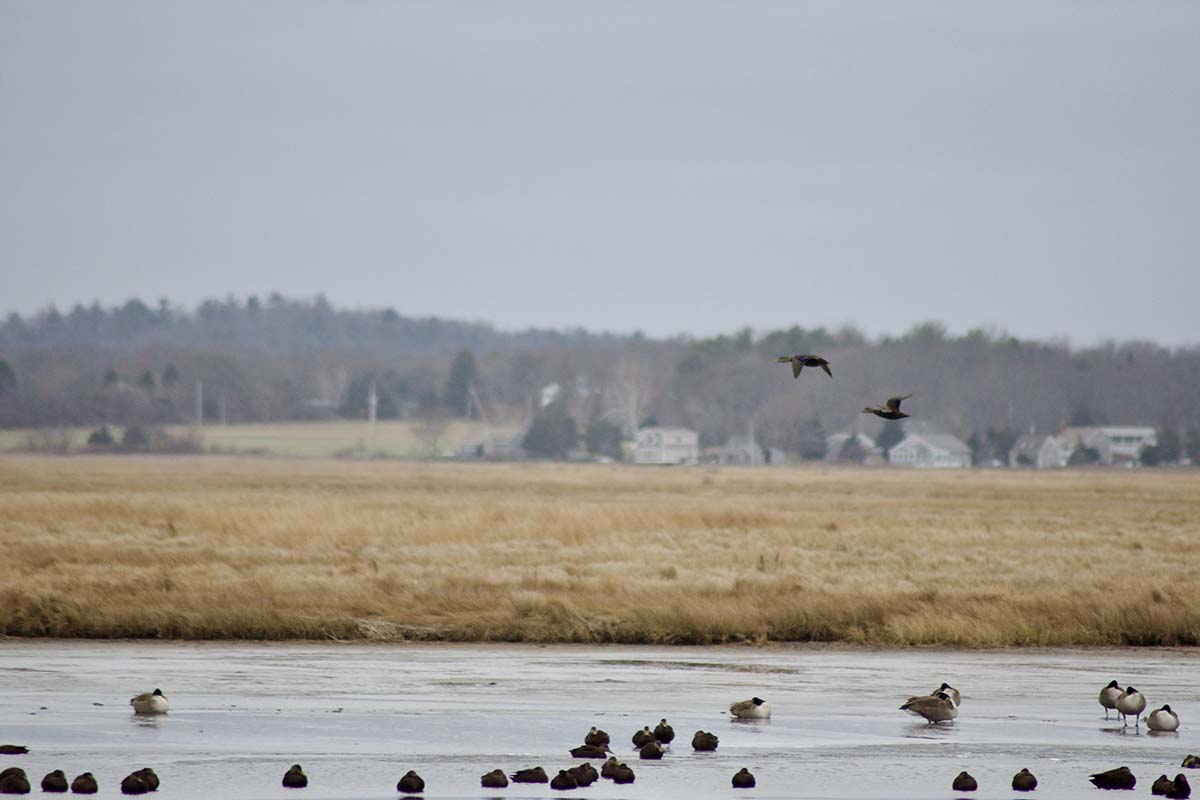Richard King Mellon Foundation Awards $1 Million to Protect Prairie Potholes
The funding will also restore habitats in the Midwest and coastal landscapes
The funding will also restore habitats in the Midwest and coastal landscapes

The Richard King Mellon Foundation is investing $1 million in the future of wetland habitats by partnering with Ducks Unlimited (DU) on urban In-Lieu Fee (ILF) mitigation initiatives in San Francisco, Calif., and Long Island, N.Y. The funding also conserves and restores wetland acres in North Dakota and Michigan.
The Foundation will provide the capital to advance DU’s growing mitigation banking program, which puts functioning wetland habitats in high-development areas in important landscapes for waterfowl conservation around the country. This partnership will conserve over 1,000 acres, restore hundreds of acres and reinvest an estimated $4.48 million into wetland conservation by 2030.
"Ducks Unlimited is excited to continue our partnership with the Richard King Mellon Foundation, which has a long history of investing in conservation efforts across the country,” said DU Director of Development Ron Zega. “DU’s mitigation program is critical to the future of wetland habitat. When development infringes on native wetlands, those acres must be replaced so that no net loss occurs. That’s where we step in.”
DU’s compensatory mitigation program was started in the 1990s to deliver valuable projects that advance the speed and scale of habitat restoration in key landscapes for waterfowl and people. In Lieu Fee mitigation are mitigation programs operated by non-profit or state agencies and are used to offset unavoidable impacts on wetlands. Permittees buy credits from the ILF provider who pools credit sales and does a larger wetland project than would otherwise be possible. The ILF credit costs enable a net increase in aquatic resources replacing the wetland functions lost or degraded because of the permittee's project impact.
State and federal regulations protecting aquatic resources benefit the public and wildlife by providing clean water, flood storage and other ecological services. Most wetland protections carry requirements to compensate for impacts to natural resources.
“Generally, in the absence of mitigation credits from banks or ILF, the mitigation projects that do occur are on small, isolated tracts that do little to advance broader conservation objectives,” said DU Director of Conservation Programs Dr. Patrick Raney. “With ILF or bank credits, enabling pooling of funding from these permit obligations, there is potential to address conservation needs and reinvest funds for expanded conservation outcomes.”
Due to the Foundation’s generosity, DU can focus on establishing programs in areas with historically high mitigation needs. DU works in many areas that have underserved mitigation needs where existing mitigation credit supplies cannot keep up with development. It is critical for wildlife that these wetlands are constructed in the right places, where migratory waterfowl, fish and other species can benefit. That is why DU is delivering mitigation banks in North Dakota and Michigan.
Coastal urban areas are also underserved, technically challenging and expensive locations to deliver compensatory mitigation. As a result, there is little private investment due to capital and technical expertise barriers. DU has a strong track record of coastal wetland delivery and is uniquely positioned to access an ILF banking structure that enables multiple permittees to pay for the restoration of larger sites.